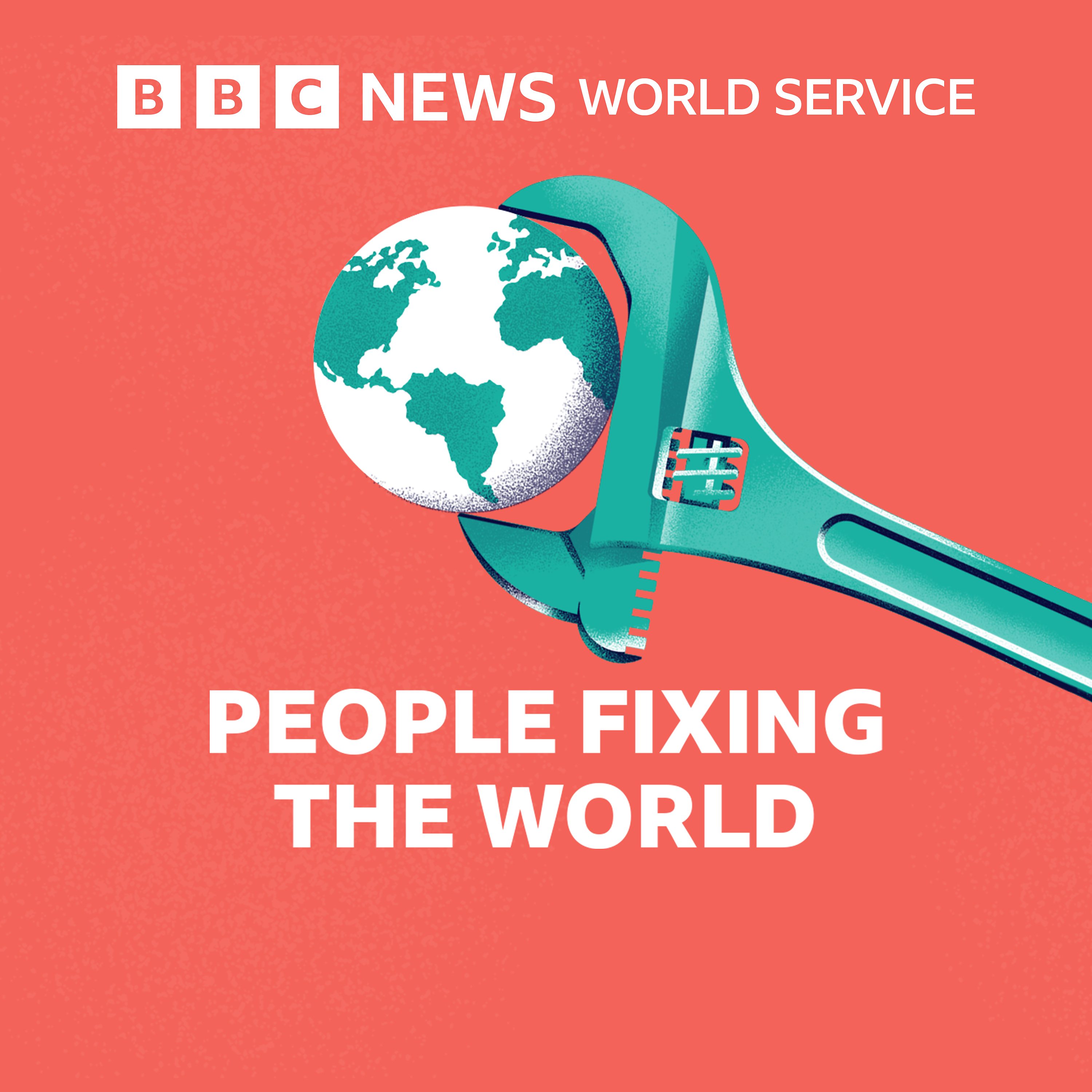

People Fixing the World
BBC World Service
Brilliant solutions to the world’s problems. We meet people with ideas to make the world a better place and investigate whether they work.
Episodes
Mentioned books

Jul 6, 2021 • 24min
The great mosquito swap
A large study published in June showed how a peculiar intervention could help prevent the spread of dengue fever. Instead of vaccinating people, the World Mosquito Program has found a way to breed mosquitoes carrying bacteria that prevent them catching the disease in the first place. The organisation releases millions of these designer mosquitos into a city with the aim of displacing the wild population and protecting the human residents. People Fixing the World saw the method in action in Colombia in 2019 – this is another chance to hear that report, and get an update.
Presenter: Tom Colls
Reporter / Producer: William Kremer
(Photo Caption: The Aedes Aegypti Mosquito / Photo Credit: Getty Images)

Jun 29, 2021 • 27min
The career where it helps to have a criminal past
Former criminals are being employed to run part of the probation system in one of America’s deeply troubled, gang-ridden communities. It’s a bold new approach to crime prevention, and it seems to be working - young lives are being transformed and reconviction rates are dropping.Produced and presented by Jo Mathys

Jun 22, 2021 • 23min
Test-tube rhinos
Scientists have hatched an incredible plan to save the northern white rhino from extinction. The team is using IVF techniques to produce a calf because the only two females left alive are infertile. Nick Holland reports on how close they are to succeeding and of their hopes to eventually release a whole herd back into the wild.
Produced and presented by Nick Holland

Jun 15, 2021 • 24min
Smashing the glass ceiling for young Africans
A young Zimbabwean, Farai Munjoma, has set up a network of mentors to help Africa’s youth achieve their dreams.
The idea is to link young people up with someone who can inspire and guide them as they apply to university and jobs.
Reporter: Victoria Uwonkunda
Producer: Jo Mathys

Jun 8, 2021 • 24min
The helpline for jealous and violent men
This week we hear from Colombia, where a helpline with a difference recently opened. Its aim is to stop domestic violence, but instead of targeting victims, it targets the perpetrators.
The idea is to get men in particular, who are struggling with jealousy, anger and other strong emotions, to phone in and get help.
Produced and presented by Craig Langran
Picture: Getty Images

Jun 1, 2021 • 24min
Turning the desert green
The Sinai desert in Egypt is a dry, barren place where not much grows. But Ties van der Hoeven has come up with a scheme to turn it into a green and fertile land. It’s a plan on a huge scale which involves dredging a lake, restoring ecosystems, and even bringing back rain to the desert. He’s been inspired by a successful project to restore the Loess Plateau in China. But could it work in the Middle East?Produced and presented by Richard Kenny.Picture: Getty Images

May 25, 2021 • 24min
Catching up with the problem solvers
Are stickers still saving lives? Was a coral reef repaired? Did the volcano erupt?
In this episode we check back in with three projects that have featured on our programme over the past four years and find out if everything went to plan.
We hear from the scientist who developed a sticker that stops car crashes, the people behind an insurance scheme for coral reefs, and find out if a plan to deliver aid before a disaster was up to the test.
Producer/presenter: Tom Colls
Reporters: Richard Kenny and Jo Mathys
Image: The Red Cross operation in Ecuador

May 18, 2021 • 28min
Regrowing the rainforest
It has taken him 40 years, but Omar Tello has turned a patch of exhausted farmland in Ecuador back into rainforest. One of his biggest challenges was repairing the soil. His land was so degraded he had to make enough new soil - from unwanted wood shavings and chicken manure - to cover the entire plot. That alone took about 15 years.
He also travelled deep into the Amazon for days at a time, looking for seeds and plants he could rescue. Now his forest is flourishing and the wildlife has returned - it is home to snakes, toucans, monkeys and many other animals. And he is sharing what he has learned to encourage others to protect the rainforests instead of cutting them down.
Presented and produced by Jo Mathys.Repeat - first published 31 March 2020.

May 11, 2021 • 23min
Turning oil platforms into reefs
There are thousands of oil and gas platforms in the world’s oceans and in the coming decades many will become obsolete. Some people think that instead of treating them as industrial waste, we should embrace the ecosystems they’ve created and leave them in the sea as artificial reefs. This approach has been adopted by some US states, and scientists are considering whether this could also work in the North Sea.
Produced and presented by Celestina Olulode
Picture: Getty Images

May 4, 2021 • 23min
The forest sound detectives
Scientists are checking up on the health of forests by analysing the sounds in them. They test their vital signs by measuring the croaks, tweets and hums of resident creatures. If they can hear a full range of animals they can be confident an ecosystem is doing well. However, if gaps start to appear, it’s a sign something is up. Nick Holland hears more about how it works and how it’s being used to strike a balance between the needs of Papua New Guinea’s growing indigenous communities and the need to preserve the biodiversity of the forests they live off.
Produced and presented by Nick Holland
Image: The Nature Conservancy


